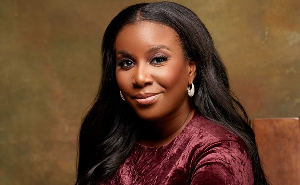The Head of the Obstetrics and Gynaecology Department of the Korle-Bu Teaching Hospital, Prof Samuel A. Obed, has stressed the need for the hospital to have a special facility that will provide information and services for adolescents.
He said adolescent sexual and reproductive health was a major issue that needed utmost attention. Describing adolescence as a “confused period” in a person’s life, he said the lack of information and services for adolescents on their reproductive health had led to many of them making uninformed decisions, to the detriment of their lives.
The department has a reproductive health centre which is supposed to be four-storey but has only the ground floor completed to take care of family planning and cervical cancer screening.
Prof Obed, therefore, appealed to organisations and individuals to assist the department to develop at least one floor to be used as an adolescent clinic.
He explained that the situation at Korle-Bu now was not the best and that the normal gynaecology clinic was too busy and might not be able to take care of the unique problems of teenagers.
“When teenagers meet people who are old enough to be their parents and grandmothers at the same clinic, chances are that they won’t tell the truth and the doctor may also be too busy to pry more and lack of confidentiality and privacy in such cases is also a problem,” he said.
Prof Obed was optimistic that when there was a facility solely dedicated to the sexual and reproductive health needs of adolescents, it would help them seek information and report all their concerns in a more adolescent friendly environment.
“The facility will not only take care of ailments but also provide information, education, contraceptive needs, as well as manage all concerns of adolescents,” he said.
He said the doctors and nurses would also be dedicated solely to that cause and thereby give of their best.
With an adolescent clinic in place, Dr Obed said, it would help improve the situation and more young people would stay in school and focus on their education, which ultimately would benefit the nation.
He said although the number of adolescents using crude methods to abort pregnancies had gone down recently, hardly a day passed without the department encountering such a young adult, which indicated that young people needed information in order to make the right decision.
He said gynaecological deaths for the first half of 2013 showed that the percentage of deaths due to abortion was 2.6 per cent. For the whole of 2012, it was 6.7 per cent.
The World Health Organisation (WHO) notes that to prevent unintended pregnancies and other sexual and reproductive health risks, adolescents require information.
This include comprehensive sex education, access to a full range of sexual and reproductive health services and safe and supportive environments free from exploitation and abuse.
Health News of Saturday, 14 September 2013
Source: The Mirror
















